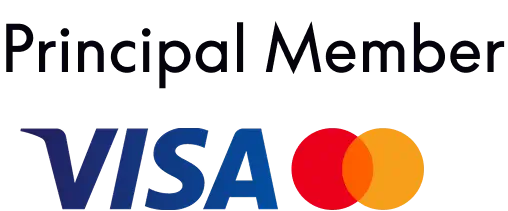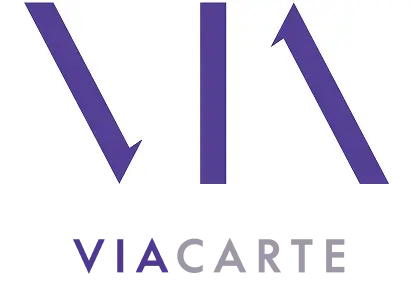Across Latin America and the Caribbean, the way businesses move money is undergoing a major transformation. Manual cross-border processes — slow, paper-based, and vulnerable to fraud — are being replaced by programmable payment frameworks that deliver automation, transparency, and real-time compliance.
ViaCarte is leading this transition, combining Visa and Mastercard licensing with API-first infrastructure to help regional enterprises deploy scalable, compliant, and fraud-resistant payment programs built for modern trade. And with the introduction of NebuPay, ViaCarte’s tokenized issuer wallet layer, this next phase of programmable innovation will extend even deeper into digital security, global connectivity, and real-time fraud prevention.
For companies operating across borders, trust and governance now define competitiveness. Financial institutions, corporations, and fintechs are shifting from traditional payment methods to API-driven programmable systems that integrate regulatory safeguards directly into every transaction.
Key Takeaways
- Programmable payments automate B2B workflows and approvals.
- Compliance frameworks (AML/KYC) are embedded into transactions.
- Cross-border agility improves liquidity and trade efficiency.
- Trust and regulation drive enterprise adoption.
- Real-time fraud protection ensures transparency and governance.
What Are Programmable Payments?
Programmable payments are digitally coded transfers that move funds automatically when specific conditions are met — for instance, paying a supplier once goods are delivered or releasing funds after compliance checks are cleared.
Unlike standard payments, programmable frameworks can enforce spending rules, approvals, and reporting in real time, aligning every transaction with a company’s operational and regulatory requirements.
In short, programmable payments don’t just move money; they manage, verify, and secure it intelligently.
Why LATAM & the Caribbean Markets Are Unique
No two LATAM or Caribbean economies operate under identical conditions. Regulatory frameworks, currency stability, and digital infrastructure vary widely between Brazil, Panama, Colombia, Jamaica, and the Dominican Republic.
This diversity presents both opportunity and complexity. The region’s rapid fintech adoption, coupled with tightening compliance laws, creates the perfect environment for programmable payments to thrive.
In markets where cross-border fraud and regulatory fragmentation have long posed challenges, programmable card programs and automated payment networks provide a unified approach: transparency, accountability, and scalability.
Building Blocks Behind the Shift
Compliance First
Regulatory adherence has become the defining differentiator for regional financial institutions. Anti-Money Laundering (AML) and Know Your Customer (KYC) protocols are no longer post-transaction checks — they are pre-built into payment architecture, ensuring that each transaction is verified and logged in real time.
APIs and Open Banking
Countries such as Brazil and Panama are embracing open-banking ecosystems, allowing fintechs and banks to exchange payment data securely through programmable APIs. This connectivity enables seamless corporate integrations with ERP systems, expense platforms, and treasury dashboards.
AI and Machine Learning
AI-powered monitoring tools detect anomalies, identify suspicious activity, and reduce human error. In Caribbean banking, these technologies are fast becoming compliance essentials, not add-ons.
Regional Growth
Latin America’s digital payments curve is steep: forecasts point to US $300 billion by 2027, powered by Brazil’s Pix and Mexico’s fast-growing digital economy. In the Caribbean, the Dominican Republic is moving toward open-banking–ready frameworks and Panama’s banks are deepening API integrations a clear signal that open, programmable infrastructure is becoming the regional default.
Use Cases Reshaping Regional Finance
Cross-Border Vendor Payments
Businesses in Panama, Colombia, and Chile use programmable payments to automate supplier settlements in multiple currencies. This reduces FX friction, accelerates reconciliation, and ensures regulatory compliance.
Supply Chain & Logistics
Exporters across LATAM use programmable payments to release funds automatically once cargo is scanned or cleared at ports, improving supplier trust and reducing paperwork.
Corporate Expense Management
Programmable card programs allow CFOs in Uruguay and Brazil to set limits, control approvals, and track spend across departments in real time — a level of oversight that prepaid or manual systems cannot deliver.
Regulated Financial Services
Banks and insurers in the Caribbean deploy programmable payments to build transparent audit trails and simplify cross-border AML reporting, reducing regulatory risk while improving client experience.
The Compliance Imperative
Compliance is more than a box-ticking exercise; it’s now a strategic advantage. ViaCarte’s programmable card programs integrate compliance directly into every transaction. Corporate treasurers can predefine spending limits, capture metadata, and automate reporting, reducing manual workload and ensuring governance.
Across global markets, tokenized payment frameworks have been shown to reduce fraud by up to 60% — a clear reminder that security and compliance now move in lockstep as the foundation of cross-border trust.
Regional Growth Signals
- LATAM digital payments are expected to exceed USD 500 billion by 2027.
- Caribbean fintech adoption has tripled since 2020.
- Uruguay is emerging as a fintech and API innovation hub.
- Brazil is driving half of the region’s digital transaction volume.
These indicators show not only growth but also structural maturity, signalling that programmable payments will soon underpin regional corporate finance.
Why ViaCarte
Unlike one-size-fits-all global providers, ViaCarte delivers region-specific card programs built for LATAM and Caribbean realities.
Key Differentiators
- Visa / Mastercard licensing ensures global merchant acceptance.
- API-first architecture integrates with banking and ERP systems.
- Compliance-driven design supports AML / KYC frameworks.
- Regional expertise spans Panama, Brazil, Colombia, Chile, Uruguay, and key Caribbean hubs.
And now, with NebuPay — ViaCarte’s tokenized issuer wallet — the company is extending this infrastructure beyond cards into secure, contactless, and globally connected payments. NebuPay enhances the fraud protection and transparency already built into ViaCarte’s virtual and programmable card programs, setting the stage for the next generation of enterprise-ready digital payments.
ViaCarte isn’t simply digitising payments; it’s re-engineering trust and efficiency in how regional enterprises transact.
Looking Ahead
Over the next five years, programmable payments will become the standard infrastructure for corporate finance across LATAM and the Caribbean. Expect:
- End-to-end programmable compliance, where every payment validates AML / KYC conditions automatically.
- Multi-currency interoperability, enabling frictionless regional trade.
- Stronger regulatory harmonisation led by central banks and monetary authorities.
For forward-looking enterprises, the question is no longer if but how fast to integrate programmable, compliance-ready payments.
The Road Ahead for Regional Enterprises
As LATAM and Caribbean economies continue digitalisation, two trends will dominate:
- Programmable Compliance: Payments coded with AML/KYC rules at the transaction level.
- Cross-Border Efficiency: Multi-currency cards streamlining FX processes and reducing settlement friction in regional trade.
And soon, wallet-layer tokenization through NebuPay will bring another leap forward — enabling secure, biometric, and globally accepted payments directly linked to programmable card frameworks.
For enterprises, this means greater agility, reduced fraud, and stronger regulatory alignment.
Conclusion
The future of payments in LATAM and the Caribbean is programmable, compliant, and transparent. Organizations that embed automation and governance into their payment systems today will lead tomorrow’s digital economy.
ViaCarte combines global network licensing, regional compliance expertise, and API-first innovation to deliver scalable card programs designed for LATAM and the Caribbean’s evolving financial landscape. With NebuPay now extending these capabilities into a tokenized wallet layer, the path toward safer, smarter, and more connected payments is already here.
FAQs
1. What are programmable card programmes and how do they work?
Programmable card programmes use digital logic to automate when and how funds move—such as releasing payments after delivery or compliance approval—ensuring every transaction follows predefined business and regulatory rules.
2. Why are programmable payments important for LATAM and the Caribbean?
They solve long-standing challenges of cross-border trade, fragmented regulation, and manual processes by embedding automation, compliance, and real-time visibility directly into financial transactions.
3. How do programmable systems improve compliance and fraud prevention?
ViaCarte’s architecture integrates AML/KYC checks, tokenization, and real-time monitoring into each transaction, reducing human error, preventing fraud, and ensuring alignment with evolving LATAM and Caribbean financial regulations.
4. What industries benefit most from programmable card infrastructure?
Banks, fintechs, exporters, logistics firms, and large enterprises benefit from programmable card systems that automate vendor payments, manage expenses, and streamline cross-border reconciliation.
5. How does NebuPay enhance programmable payments?
NebuPay, ViaCarte’s tokenized issuer wallet, adds a secure, biometric, and globally accepted wallet layer to programmable cards—elevating fraud protection and enabling seamless, contactless transactions across multiple currencies.



